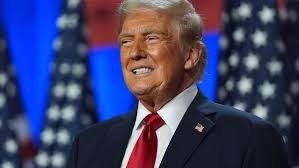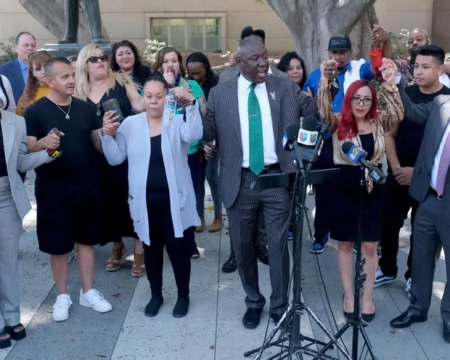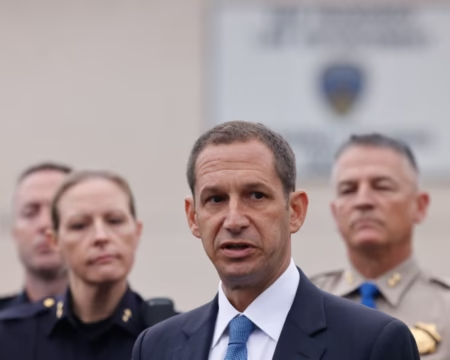When Ronald Reagan became the first U.S. president to address China’s Great Hall of the People in 1984, he used the moment to champion the core Republican belief in free markets and limited government. His philosophy was simple: trust the people. Reagan argued that the greatest economic progress came when individuals were allowed to make their own choices, take risks, and benefit from them, while governments stepped aside.
Four decades later, the United States is seeing a dramatic departure from those principles. Under President Donald Trump in 2025, the White House has taken an unprecedented hands-on role in corporate America, blurring the line between free-market capitalism and state intervention. From securing “golden shares” in major companies to forcing boardroom changes and influencing product lines, Trump has become not only commander-in-chief but also chairman of the economy.
Trump secured a government stake in U.S. Steel while approving its $14.9 billion takeover by Nippon Steel, converted nearly $9 billion in grants for Intel into a 10% equity share, and pressured Apple into pledging $100 billion in new investments under threat of tariffs. Nvidia agreed to give up 15% of its chip sales in China as part of a special arrangement with the administration. Even seemingly small issues have drawn Trump’s involvement, such as persuading Cracker Barrel to restore its old logo and urging Coca-Cola to use cane sugar instead of corn syrup.
The president’s influence has also extended into government institutions. He has clashed with the Federal Reserve, sought greater control over its board, and dismissed the head of the Bureau of Labor Statistics after jobs data revealed an economic slowdown. Trump claimed, without evidence, that the report was “rigged” before replacing the official with a loyal supporter.
Critics argue this level of intervention undermines the very principles Republicans once stood for. Reagan’s free-market vision is giving way to what analysts describe as “Trumpalism” — a system not defined by ideology but by Trump’s personal instincts and demands. Tad DeHaven of the libertarian Cato Institute describes it as power without philosophy: “There’s no strategic plan here. There’s no guiding philosophy, other than Donald Trump’s in charge.”
Some Republicans themselves have raised alarms. Senator Rand Paul questioned whether government stakes in corporations mark a step toward socialism, while conservative commentator Erick Erickson warned that selectively opposing socialism is hypocritical. Others, however, defend Trump’s approach as pragmatic, arguing that it ensures American control over critical industries.
The shift highlights a stark contrast between Reagan’s “trust the people” message and Trump’s day-to-day interventions. Where Reagan promoted free markets as the engine of progress, Trump has embraced direct involvement, leveraging government power to influence economic outcomes in real time. Supporters see it as bold leadership; opponents see it as an erosion of capitalism’s foundations.
For many within the Republican Party, the change signals the end of an era. As DeHaven observed, “The Reagan Republicans — that party is dead and buried.” In its place stands a new, personality-driven model of governance where ideology takes a back seat to the president’s instincts — a defining feature of Trumpalism.







